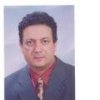Biography
Dr. Man Wah Tan started his lab at Genentech in 2010. Prior to this, he was an Associate Professor at Stanford University. He drawn to Genentech because of his newfound passion in translating basic discoveries and understanding of host-pathogen interactions into novel medicine for patients with serious and life-threatening infections. Genentech has a strong record of creating novel medicines from cutting edge science. During his academic career, his laboratory used infection of C. elegans by bacterial pathogens as an experimental system to discover and elucidate molecular mechanisms underlying bacterial pathogenesis and host responses within the context of an intact host. His team identified host and pathogen factors that contribute significantly to the outcome of an infection. They include the involvements of the nervous system, the p38 mitogen-activated protein kinase and insulin signaling pathways of the host, as well as the quorum sensing system of the bacteria, in modulating host-pathogen interactions. They are now interested in validating and extending these findings in mammalian models of infections and in identifying critical nodes.
Research Interest
Dr. Man Wah Tan interested in identifying genetic determinants from bacterial pathogens that are essential for pathogenesis and maintenance of infections in vivo using a combination of genetics, molecular and bioinformatics approaches, with focus on surface-associated molecules. His team also seeks to identify and characterize host factors that are associated with disease progression during infections. Their goals are to define bacterial and/or host factors these could potentially be targeted by small or large molecules for therapeutic interventions to ameliorate diseases, including pneumonia and bacteremia.

Thomas Voss
Director, Center for Infectious Diseases
SRI International
USA
Biography
Thomas Voss, Ph.D., is a world-renowned thought leader in infectious disease research, and has deep expertise in virology, immunology, biodefense, and vaccine and antiviral development. His research interests include cell-virus interactions and their role in the pathogenesis of acute viral infections, as well as therapeutic and vaccine development. Voss joined SRI in 2013 from the Tulane School of Medicine’s Department of Microbiology and Immunology, where he was an associate professor from 2005 to 2012. From 1998 to 2005, he worked in various roles at Southern Research Institute, ultimately as vice president of the Homeland Security and Emerging Infectious Disease Division. Previously, Voss held roles at Carl Zeiss, Inc. (Advanced Imaging Microscopy group), the U.S. Centers for Disease Control and Prevention (Measles Virus Section, Respiratory and Enteric Virus Branch), and University Hospital in Zurich, Switzerland (Internal Medicine Division).
Research Interest
With his deep subject matter expertise in virology, immunology, biodefense, and vaccine and antiviral development, Voss has held a variety of consulting roles, including with companies such as GLG Associates, UND Research Foundation, and Mantech SRS. Voss is a member of several professional societies, including the International Society for Influenza and Other Respiratory Viruses and the American Society for Microbiology. He holds several awards for his work.
Biography
Marek Malecki MD PhD is President of the Phoenix Foundation, San Francisco, CA, USA, Principal Investigator at the National Institutes of Health, Bethesda, MD, USA, and Visiting Professor at the University of Wisconsin. He earned the MD degree at the Medical Academy, Poznan followed by Residency/Fellowships in Molecular Medicine in Rigshospitalet, Copenhagen, Cancer Center, Vienna, and Cancer Center, Warsaw. He earned the PhD degree at the Polish Academy of Sciences, Warsaw followed by the postdoctoral fellowships in molecular biology at the Austrian Academy of Sciences, Salzburg, ETH, Zurich, Utrecht University, Utrecht, Cancer Center, Amsterdam, Biozentrum, Basel. Over the last 20 years, he held faculty positions in Oncology and Molecular Medicine at the leading teaching hospitals and medical universities in the USA including the UW, UCSD, and SDSU. There, he acquired solid experience in streamlining advances in genomics and proteomics into novel strategies of therapy, as well as in teaching medical students, residents, and fellows. During his career, he served as the president and CEO of the Phoenix Biomolecular and Foundation for Molecular Medicine. Since 1988 his research, as the Principal Investigator, was continuously funded by the grants from the National Science Foundation and the National Institutes of Health. He is the first or senior author on the peer-reviewed publications in the high impact journals, which are indexed on the PubMed. He is the inventor of the gene therapies, therapeutic vaccines, and regeneration of tissues, which are published at the USPTO and WIPO. He was elected to serve as the Editor in Chief in peer-reviewed, open-access journals in Science, Technology, and Medicine, as well as Editorial Board Member and Reviewer at many others.
Research Interest
gene therapies, therapeutic vaccines, and regeneration of tissues






















